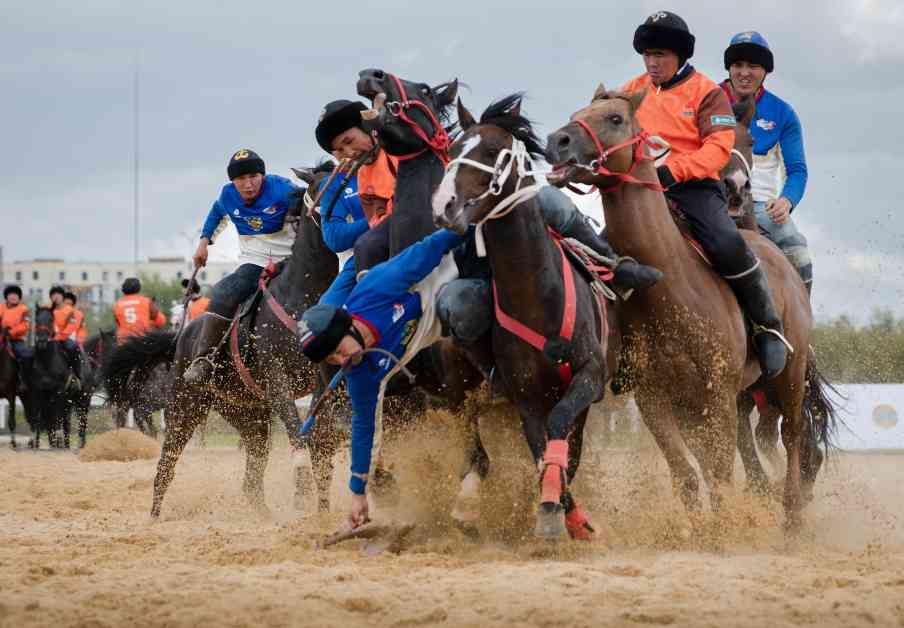The World Nomad Games: A Celebration of Nomadic Cultures
Astana, Kazakhstan – The World Nomad Games, a bi-annual event that showcases the rich heritage of the nomadic peoples of Asia’s Turkic nations, recently concluded its fifth edition in the futuristic Kazakh capital of Astana. The games, which started a decade ago in Kyrgyzstan, have grown to become a significant platform for traditional sports, culture, and unity among nomadic communities.
The opening ceremony of this year’s World Nomad Games was a grand affair, with Kazakhstan President Kassym-Jomart Tokayev emphasizing the importance of preserving the unique identity and civilization of the Great Steppe. He highlighted the role of the games in passing on the sacred heritage of nomadic peoples to future generations and fostering friendships among nations.
Traditional Games and Cultural Showcases
The World Nomad Games featured over 2,000 athletes from 89 countries participating in 21 traditional games that have deep roots in the history and traditions of nomadic societies. These games, known as the “three games of men,” include archery, wrestling, and horse racing, which reflect the skills and expertise of the nomads who once ruled the vast steppes of inner Asia.
One of the most thrilling competitions at the games was kokpar, a horseback sport played across Central Asia. In this game, riders compete to lift and hoist the carcass of a goat and dash towards the goal, while being chased by opposing teams of horsemen. The intensity and physicality of kokpar demonstrate the courage and skill required to excel in traditional nomadic sports.
Global Participation and Emerging Champions
The World Nomad Games saw competitors from diverse nations, ranging from Angola to Argentina, Hungary to Sweden, and Turkmenistan to Zimbabwe, coming together to celebrate the cultural heritage of nomadic communities. Kazakhstan emerged as the overall winner of the games, securing a total of 112 medals, including 43 golds, followed by Kyrgyzstan and Russia.
While traditional Central Asian nations like Kazakhstan and Kyrgyzstan dominated the medal standings, there were surprises from countries like Italy, Hungary, Romania, and Poland, which showcased their prowess in traditional games and martial arts. Italy’s Betty Vuk made history by winning the gold medal in traditional Kazakh wrestling, highlighting the growing appeal of nomadic sports worldwide.
Future of the World Nomad Games
As the World Nomad Games continue to grow in popularity and significance, there are discussions about expanding the event to new regions and countries. Kazakhstan’s vice-minister of Tourism and Sports, Zharasbayev Serik Maratovich, expressed the possibility of hosting future games in North America by 2030 or 2032, emphasizing the need to promote and preserve traditional nomadic games on a global scale.
Overall, the World Nomad Games serve as a testament to the enduring legacy of nomadic cultures and the spirit of unity and camaraderie among nations. Through traditional sports, cultural showcases, and friendly competition, the games provide a platform for celebrating the timeless traditions of the nomadic peoples of Asia’s Turkic nations.



























